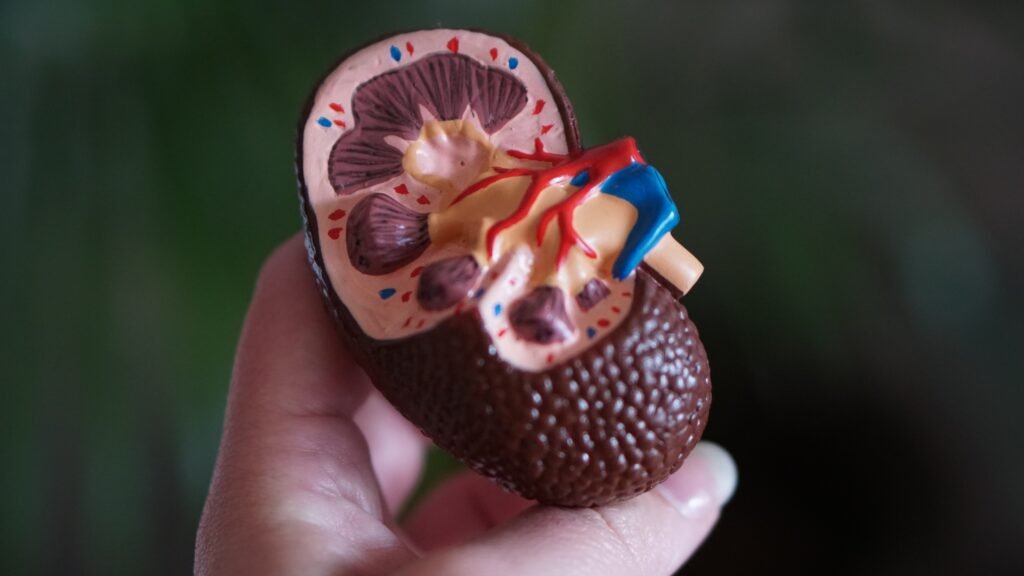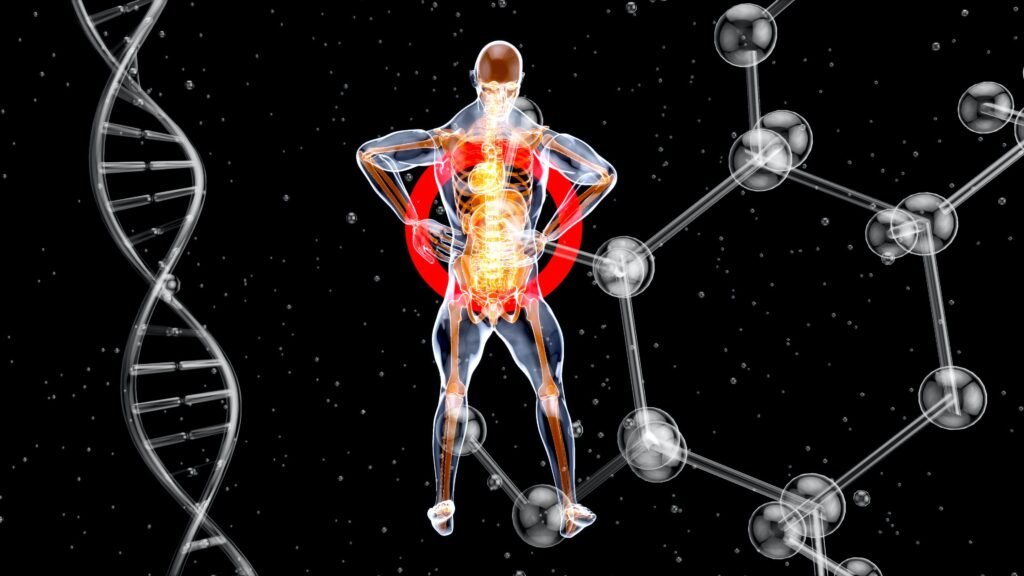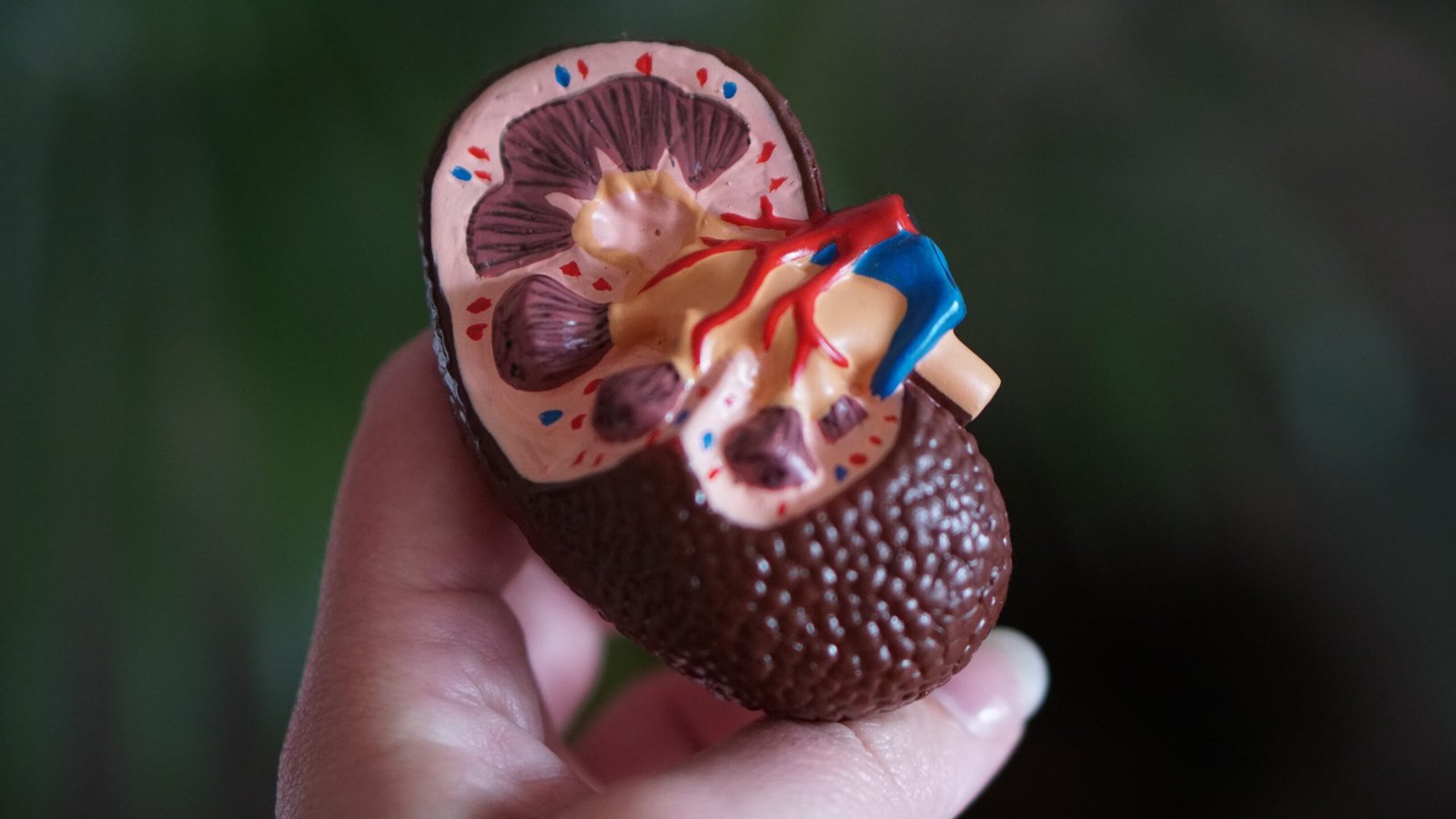So, you’ve been experiencing that sharp, unbearable pain in your lower back, and after a visit to the doctor, you find out you have kidney stones. Yikes. But worry not, because in this article, we’re going to delve into the science behind kidney stone formation and give you some valuable tips on how to stop them in their tracks. Trust me, you’ll want to read this if you’re tired of living in fear of those tiny but mighty troublemakers.
Understanding Kidney Stones
Kidney stones are small, hard mineral deposits that form inside your kidneys. These stones can range in size, from as small as a grain of sand to as large as a golf ball. Kidney stones are usually made up of calcium oxalate, but they can also be composed of other substances like uric acid or struvite.
Types of kidney stones
There are different types of kidney stones, depending on the substances that make them up. Calcium oxalate stones, as mentioned earlier, are the most common type. Uric acid stones form when there is too much uric acid in your urine. Struvite stones are usually caused by urinary tract infections. Lastly, cystine stones are rare and are formed due to a hereditary condition called cystinuria.

This image is property of images.unsplash.com.
Causes of kidney stone formation
Several factors can contribute to the formation of kidney stones. One of the main causes is a lack of proper hydration. When you’re not drinking enough water, your urine becomes more concentrated, increasing the chances of stone formation. Other causes include high levels of calcium or uric acid in the urine, certain medical conditions like hyperparathyroidism or urinary tract infections, and a family history of kidney stones.
Symptoms and Diagnosis
Kidney stones can cause a multitude of symptoms. The most common one is severe pain, often referred to as renal colic. This pain usually occurs on one side of the back or abdomen and can radiate to the lower belly or groin. Other symptoms may include blood in the urine, frequent urination, cloudy or foul-smelling urine, and a persistent need to urinate.
To diagnose kidney stones, a healthcare provider may perform various tests. These can include a physical examination, a urine test to check for blood or signs of infection, imaging tests such as X-rays or CT scans to visualize the stones, and blood tests to determine the levels of certain substances related to stone formation.

This image is property of images.unsplash.com.
Risk Factors
Certain factors can increase your risk of developing kidney stones. Age and gender play a role, with men being more prone to kidney stones than women. A family history of kidney stones can also increase your likelihood of developing them. Medical conditions like obesity, high blood pressure, and inflammatory bowel disease can predispose you to kidney stone formation. Additionally, dehydration, which can occur due to inadequate fluid intake or excessive sweating, can raise your risk. Finally, certain dietary factors like a high salt, oxalate, or animal protein intake can contribute to stone formation.
Prevention and Lifestyle Changes
Preventing kidney stones involves making certain lifestyle modifications. One crucial aspect is maintaining adequate hydration. Drinking enough water ensures that your urine is diluted, decreasing the chances of stone formation. Aim to drink at least eight glasses of water per day, or more if you are physically active or live in a hot climate.
Diet also plays a significant role. To prevent the formation of calcium oxalate stones, it’s important to limit the intake of oxalate-rich foods such as spinach, rhubarb, and beets. Consuming sufficient calcium can actually help reduce the risk of stone formation, so it’s important to include sources of calcium in your diet, such as dairy products or fortified non-dairy alternatives.
Reducing your sodium intake is also crucial in preventing kidney stones. High sodium levels in the body can lead to increased calcium excretion in the urine, which promotes stone formation. It’s recommended to limit your daily sodium intake to no more than 2,300 milligrams.
Another dietary consideration is to limit your consumption of animal protein, as it can increase the excretion of calcium and uric acid in the urine. It’s advisable to have a balanced diet that includes plant-based protein sources like legumes and tofu.
Maintaining a healthy weight is also important for preventing kidney stones, as obesity is a risk factor. Regular exercise and a balanced diet can help you maintain a healthy weight and reduce your risk of stone formation.

This image is property of images.unsplash.com.
Medical Treatments
If you do develop kidney stones, there are several medical treatments available. One common procedure is extracorporeal shock wave lithotripsy (ESWL). This non-invasive treatment uses sound waves to break the stones into smaller pieces, which can then pass through the urinary tract more easily.
Ureteroscopy is another option for stone removal. This procedure involves passing a thin tube with a camera through the urethra and bladder to the location of the stone. The stone can then be removed or broken up using specialized tools.
In more severe cases, such as when the stones are larger or causing significant blockage, a surgical procedure called percutaneous nephrolithotomy (PCNL) may be necessary. This procedure involves making a small incision in the back and inserting a scope to remove or break up the stones.
Medications can also be prescribed to help prevent the formation of kidney stones. These medications may include thiazide diuretics to reduce calcium excretion, allopurinol to lower uric acid levels, or potassium citrate to increase urine citrate levels, which can inhibit stone formation.
Dietary Recommendations
When it comes to preventing kidney stones through diet, there are several recommendations to follow. Adequate hydration is key, so aim to drink enough water throughout the day. The National Kidney Foundation suggests a daily fluid intake of at least 2.5 to 3 liters for most adults. However, depending on your individual needs, you may require more or less fluid.
It’s important to ensure that you are getting enough calcium in your diet. Calcium binds with oxalate in the intestines, preventing it from being absorbed into the bloodstream and excreted in the urine. Good sources of calcium include dairy products, leafy greens like kale and collard greens, and fortified foods.
Limiting sodium consumption is crucial in preventing kidney stones. High sodium levels can increase calcium excretion in the urine, promoting stone formation. Be mindful of your sodium intake and try to avoid processed or packaged foods, as they usually contain high amounts of sodium. Opt for fresh, whole foods instead.
Moderating your intake of oxalate-rich foods can also help prevent kidney stones. Some examples of foods high in oxalate include spinach, chocolate, nuts, and certain berries. It’s not necessary to completely avoid these foods, but consuming them in moderation can reduce the risk of stone formation.
Controlling your intake of animal protein is another important dietary consideration. Animal protein can increase the excretion of calcium and uric acid in the urine, increasing the risk of stone formation. It’s recommended to have a balanced diet that includes a mix of plant-based and animal protein sources.
Lastly, it’s advisable to avoid high fructose corn syrup (HFCS). HFCS can increase the excretion of calcium and uric acid in the urine, contributing to stone formation. Read food labels carefully and opt for products without HFCS whenever possible.
Home Remedies
In addition to following dietary recommendations, there are some home remedies that may help prevent kidney stones. Increasing your citric acid intake can be beneficial, as citric acid helps prevent the formation of calcium stones. Citric acid is found in citrus fruits like lemons, limes, and oranges. Squeezing fresh lemon or lime juice into your water or incorporating these fruits into your diet can be a simple way to increase citric acid intake.
Lemon juice specifically has been studied for its potential benefits in preventing kidney stone formation. It is believed to help increase urine citrate levels, which inhibit the formation of calcium stones. Adding lemon juice to your water or using it as a salad dressing can provide these potential benefits.
Some herbal remedies have also been suggested for kidney stone prevention. These include herbs like dandelion root, horsetail, and nettle, which have diuretic properties and can help increase urine output. However, it’s important to consult with a healthcare professional before using these herbs, as they may interact with certain medications or have other adverse effects.
Drinking herbal teas can also be a soothing and hydrating way to support kidney health. Herbal teas like parsley tea, dandelion root tea, and nettle tea are believed to have diuretic properties and can help flush out toxins from the body. However, it’s important to note that herbal remedies should not be relied on as the sole treatment for kidney stones and should always be used in conjunction with medical advice.
Some essential oils may also provide relief from kidney stone symptoms. Oils like lemon, peppermint, and lavender are commonly used. They can be applied topically or diffused in the air to potentially alleviate pain and promote relaxation. It’s important to dilute essential oils properly and use caution when using them, as they can be irritating if not used correctly.
Exercise and Physical Activity
Engaging in regular exercise and physical activity can also play a role in kidney stone prevention. Exercise helps maintain a healthy weight, reducing the risk of stone formation. It also improves overall kidney function and promotes healthy blood circulation.
When it comes to exercise, it’s important to focus on activities that help increase sweat production. Sweating can help flush out toxins from the body, including substances that can contribute to stone formation. Activities like jogging, cycling, or participating in a cardio workout can promote sweating and support kidney health.
However, it’s important to note that excessive sweating due to intense exercise or prolonged physical activity can potentially lead to dehydration. Proper hydration is crucial for kidney stone prevention, so it’s important to balance exercise with adequate fluid intake. Make sure to drink plenty of water before, during, and after exercise to maintain proper hydration levels.
Medical Management
In addition to lifestyle modifications, there are various medical interventions available to manage kidney stones. The specific treatment plan will depend on the size and location of the stone, as well as the individual’s overall health.
Medical interventions for treating kidney stones can include procedures like extracorporeal shock wave lithotripsy (ESWL), which was mentioned earlier as a preventive measure. This procedure uses shock waves to break up the stones, allowing them to pass more easily through the urinary tract.
Prescribed medications can also be used to prevent stone formation. Thiazide diuretics may be prescribed to reduce calcium excretion in the urine. Allopurinol may be used to lower uric acid levels in the body, reducing the risk of uric acid stones. Potassium citrate may be prescribed to increase urine citrate levels, which can inhibit stone formation.
In some cases, the use of alpha-blockers may be suggested to facilitate the passage of kidney stones. These medications help relax the muscles in the ureter, allowing the stone to pass more easily. They can be particularly beneficial for individuals experiencing pain or discomfort while passing a stone.
Surgical procedures may be necessary for stone removal if the stones are large or causing significant blockage. These procedures, such as percutaneous nephrolithotomy (PCNL), involve making a small incision in the back and using specialized tools to remove or break up the stones. The specific procedure used will depend on the individual’s unique situation and the recommendation of their healthcare provider.
Follow-up and Monitoring
Once you have experienced kidney stones, it’s important to have regular check-ups and follow-up appointments with your healthcare provider. Regular monitoring allows for the early detection of any recurrent stones or changes in kidney function.
During these check-ups, your healthcare provider may perform urine and blood tests to check for any signs of stone recurrence or changes in kidney function. They may also adjust preventive measures or medications as needed based on your individual circumstances.
Following the recommended preventive measures, maintaining a healthy lifestyle, and staying in close contact with your healthcare provider can help reduce the risk of future kidney stone formation and ensure optimal kidney health.
In conclusion, understanding kidney stones is crucial for their prevention and management. By following the right dietary recommendations, making lifestyle changes, and seeking appropriate medical interventions and home remedies, it is possible to minimize the risk of kidney stone formation and improve overall kidney health. Regular check-ups and monitoring are essential for ongoing care and adjustments to preventive measures. Remember to stay hydrated, maintain a balanced diet, and consult with healthcare professionals to ensure the best possible outcomes in preventing and managing kidney stones.

